泛型中? super T和? extends T的区别
经常发现有List<? super T>、Set<? extends T>的声明,是什么意思呢?<? super T>表示包括T在内的任何T的父类,<? extends T>表示包括T在内的任何T的子类
PECS
请记住PECS原则:生产者(Producer)使用extends,消费者(Consumer)使用super。
- 生产者使用extends
如果你需要一个列表提供T类型的元素(即你想从列表中读取T类型的元素),你需要把这个列表声明成<? extends T>,比如List<? extends Integer>,因此你不能往该列表中添加任何元素。
- 消费者使用super
如果需要一个列表使用T类型的元素(即你想把T类型的元素加入到列表中),你需要把这个列表声明成<? super T>,比如List<? super Integer>,因此你不能保证从中读取到的元素的类型。
- 即是生产者,也是消费者
如果一个列表即要生产,又要消费,你不能使用泛型通配符声明列表,比如List
请参考java.util.Collections里的copy方法:(dest的元素类型 和src中的元素类型相同 或者是其父类)
/*** Copies all of the elements from one list into another. After the* operation, the index of each copied element in the destination list* will be identical to its index in the source list. The destination* list must be at least as long as the source list. If it is longer, the* remaining elements in the destination list are unaffected. <p>** This method runs in linear time.** @param <T> the class of the objects in the lists* @param dest The destination list.* @param src The source list.* @throws IndexOutOfBoundsException if the destination list is too small* to contain the entire source List.* @throws UnsupportedOperationException if the destination list's* list-iterator does not support the <tt>set</tt> operation.*/public static <T> void copy(List<? super T> dest, List<? extends T> src) {int srcSize = src.size();if (srcSize > dest.size())throw new IndexOutOfBoundsException("Source does not fit in dest");if (srcSize < COPY_THRESHOLD ||(src instanceof RandomAccess && dest instanceof RandomAccess)) {for (int i=0; i<srcSize; i++)dest.set(i, src.get(i));} else {ListIterator<? super T> di=dest.listIterator();ListIterator<? extends T> si=src.listIterator();for (int i=0; i<srcSize; i++) {di.next();di.set(si.next());}}}
泛型中使用通配符有两种形式:子类型限定<? extends xxx>和超类型限定<? super xxx>。
(1)子类型限定
下面的代码定义了一个Pair
public class Pair<T> {private T first;private T second;public Pair(T first, T second) {this.first = first;this.second = second;}public T getFirst() {return first;}public T getSecond() {return second;}public void setFirst(T newValue) {first = newValue;}public void setSecond(T newValue) {second = newValue;}}class Employee {private String name;private double salary;public Employee(String n, double s) {name = n;salary = s;}public String getName() {return name;}public double getSalary() {return salary;}}class Manager extends Employee {public Manager(String n, double s) {super(n, s);}}<pre name="code" class="java">class President extends Manager {public President(String n, double s) {super(n, s);}}
现在要定义一个函数可以打印Pair
public static void printEmployeeBoddies(Pair<Employee> pair) {System.out.println(pair.getFirst().getName() + ":" + pair.getSecond().getName());}
可是有一个问题是这个函数输入参数只能传递类型Pair
Manager mgr1 = new Manager("Jack", 10000.99);Manager mgr2 = new Manager("Tom", 10001.01);Pair<Manager> managerPair = new Pair<Manager>(mgr1, mgr2);PairAlg.printEmployeeBoddies(managerPair);
之所以会产生编译错误,是因为Pair
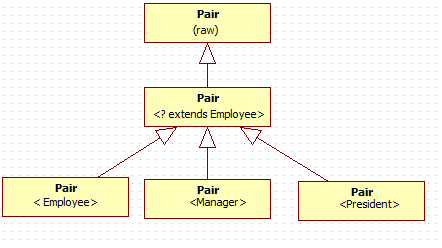
由上图可以看出,类型Pair
public static void printEmployeeBoddies(Pair<? extends Employee> pair)
但是使用通配符会不会导致通过Pair<? extends Employee>的引用破坏Pair
Pair<? extends Employee> employeePair = managePair;employeePair.setFirst(new Employee(“Tony”, 100));
不用担心,编译器会产生一个编译错误。Pair<? extends Employee>参数替换后,我们得到如下代码
? extends Employee getFirst()
void setFirst(? extends Employee)
对于get方法,没问题,因为编译器知道可以把返回对象转换为一个Employee类型。但是对于set方法,编译器无法知道具体的类型,所以会拒绝这个调用。
(2)超类型限定
超类型限定和子类型限定相反,可以给方法提供参数,但是不能使用返回值。? super Manager这个类型限定为Manager的所有超类。
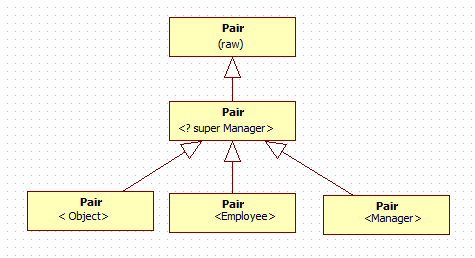
Pair<? super Manager>参数替换后,得到如下方法
? super Manager getFirst()void setFirst(? super Manager)
编译器可以用Manager的超类型,例如Employee,Object来调用setFirst方法,但是无法调用getFirst,因为不能把Manager的超类引用转换为Manager引用。
超类型限定的存在是为了解决下面一类的问题。例如要写一个函数从Manager[]中找出工资最高和最低的两个,放在一个Pair中返回。
public static void minMaxSal(Manager[] mgrs, Pair<? super Manager> pair) {if (mgrs == null || mgrs.length == 0) {return;}pair.setFirst(mgrs[0]);pair.setSecond(mgrs[0]);//TODO}
如此就可以这样调用
Pair<? super Manager> pair = new Pair<Employee>(null, null);minMaxSal(new Manager[] {mgr1, mgr2}, pair);



























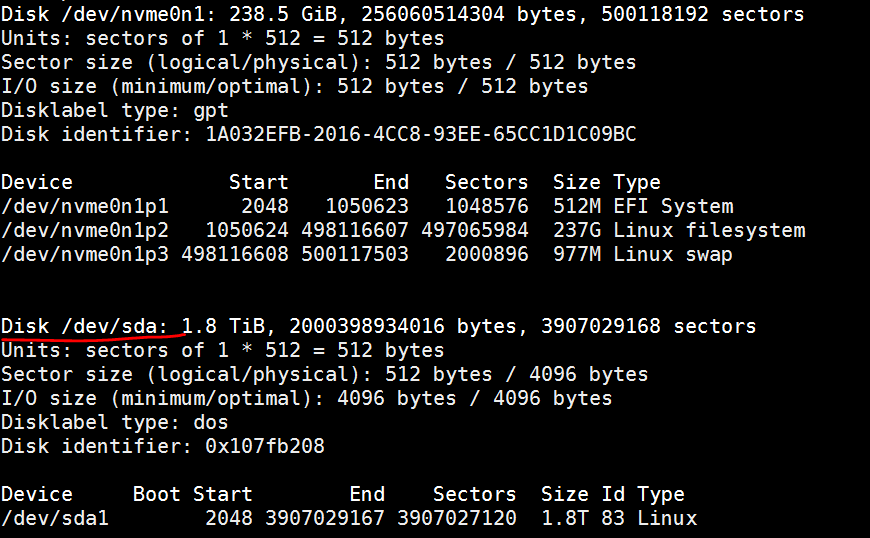
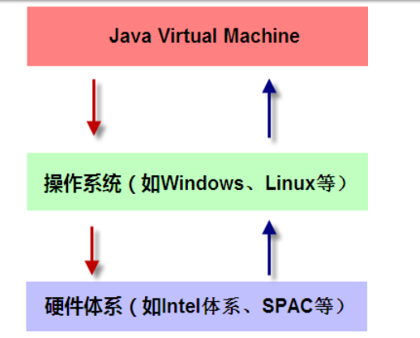
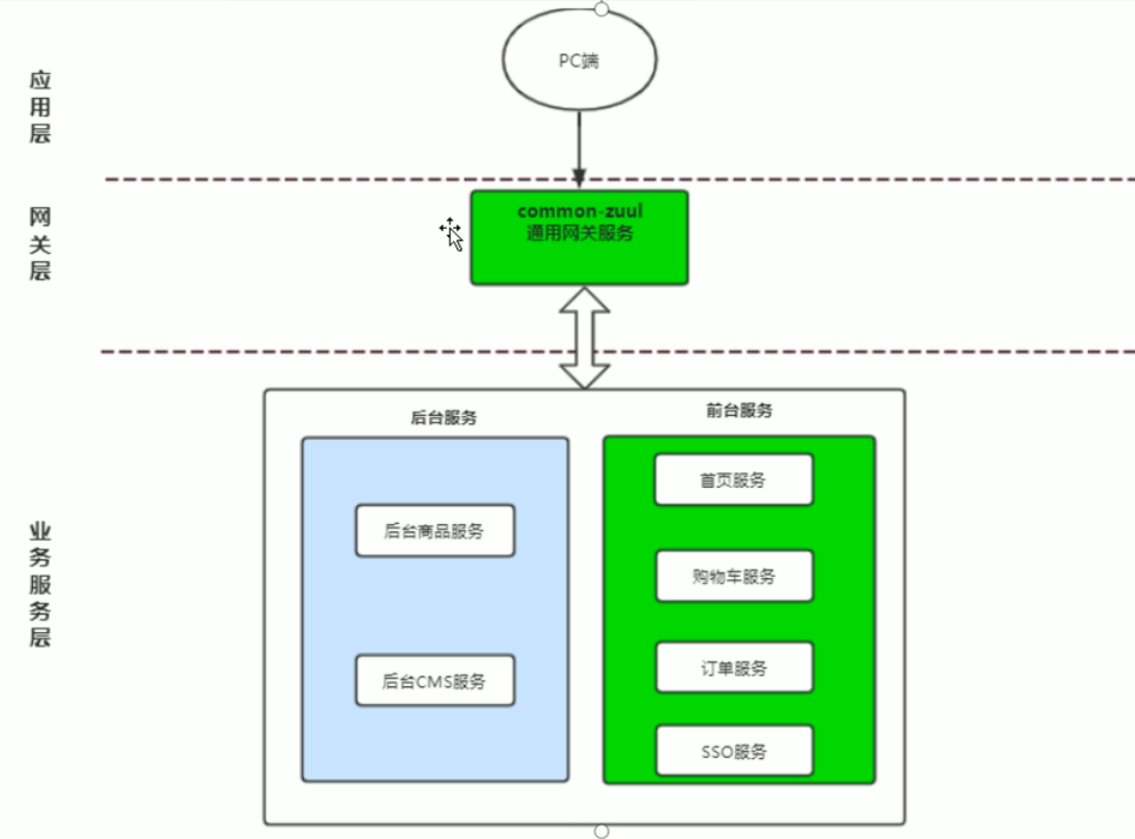
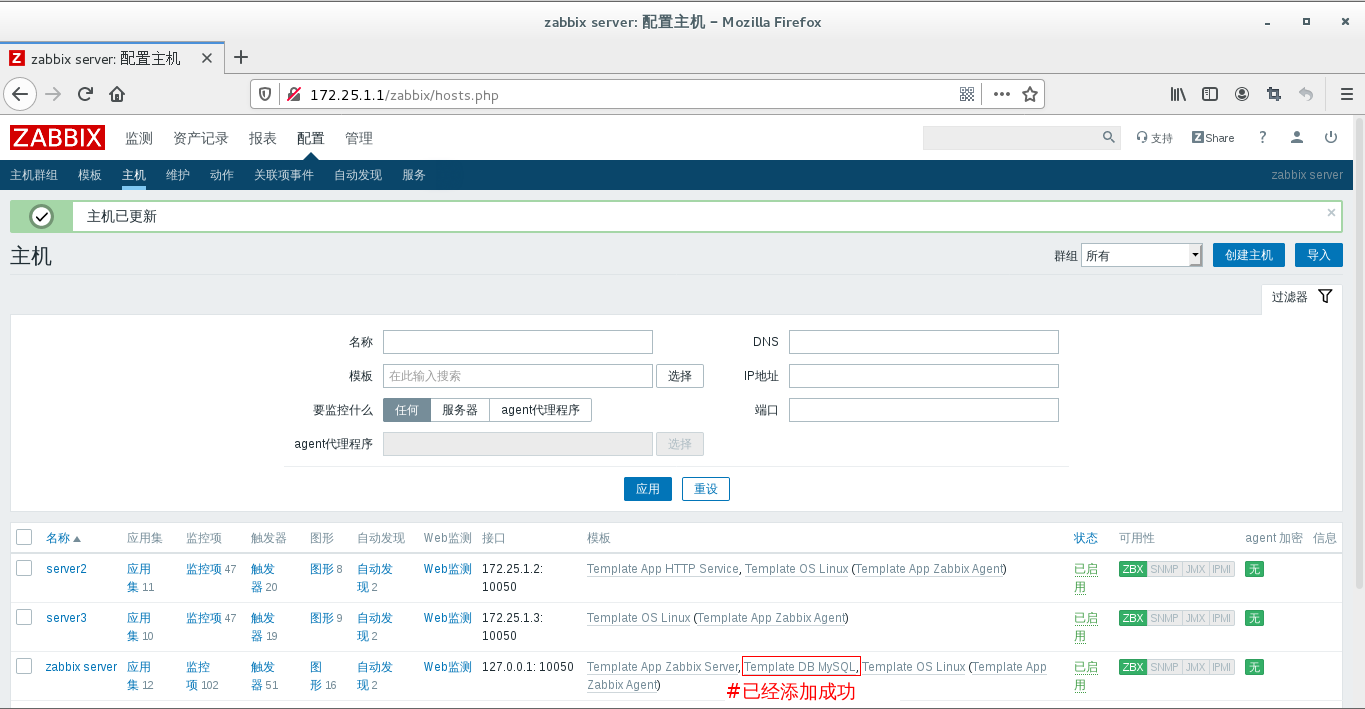
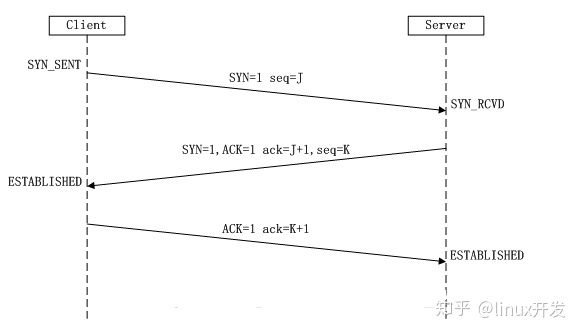



还没有评论,来说两句吧...